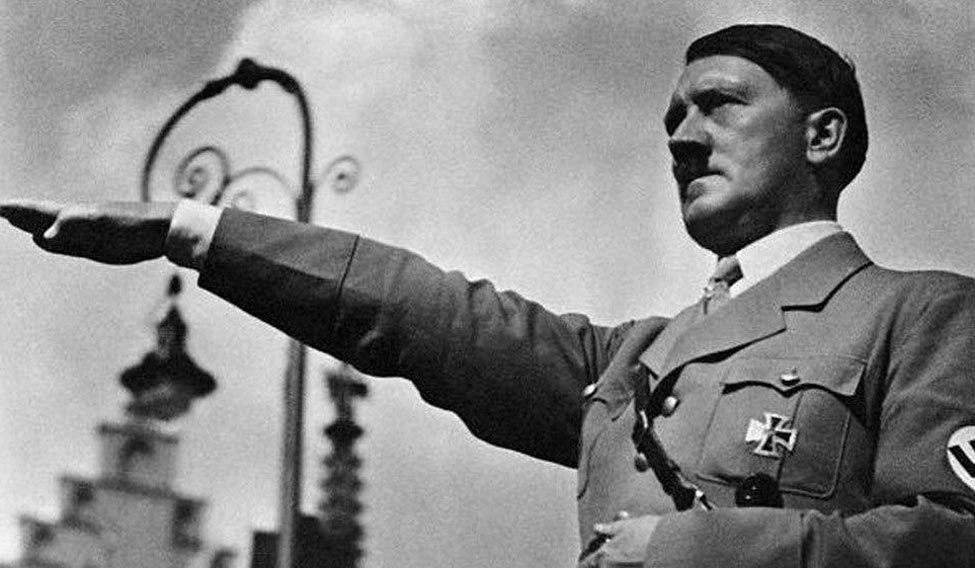On August 23, 1939, Nazi Germany and Stalin-led Soviet Union signed the Molotov-Ribbentrop pact, promising neutrality and mutual non-aggression. A week later, on September 1, 1939, the Wehrmacht (unified German forces) attacked Poland. In the face of limited assistance from the Allied forces, Germany and Russia carved the country out for themselves, with minimal resistance. A few days later, on September 3, 1939, the Allied forces, which included Great Britain and France, declared war on Germany.
For long, the Nazi regime had painted a carefully manicured image of their Fuhrer Adolf Hitler. He was simultaneously a teetotaller, a non-smoker, one who practiced abstinence and a strict vegan; advertised as a tactical genius and an iron disciplinarian who would pull Germany out from the moral rut that it had gotten itself into.
But, looking beyond the propaganda, what would one find? Journalist Norman Ohler, in his groundbreaking book, Blitz:Drugs in Nazi Germany, paints a very different picture of the man who portrayed himself the supreme commander of a master race. Hitler was hopelessly addicted to drugs, while his army, the Wehrmacht, regularly consumed methamphetamines, enough to knock out an entire continent. Drugs became an essential part of the German forces'blitzkrieg (lightning warfare).
The Weimar period (the end of the first world war to the rise of the Third Reich in Germany) unleashed debauchery second to none in the streets of Berlin. Drugs like cocaine and morphine—the latter synthesised from opium poppies—turned the country into the world leader of drugs by the year 1926.
Ohler wrote, "the life in Germany whirled apart in a toxicological frenzy. 40 per cent of Berlin doctors were considered addicted to opium.The World War (first) was lost and everything seemed permitted; the metropolis mutated into the experimental capital of Europe. Anyone who could afford it took cocaine."
The rise of the National Socialists coincided with what many considered to be a degrading era for Germany and her people. As Ohler very clearly notes, the Reichstag, under the guise of promoting a healthy republic, expanded the drug surveillance and filing systems into dictatorial proportions. In 1933, the country passed a law imprisoning addicts. In 1935, laws classified narcotics addicts as psychopathic personalities, forbidding marriages for them. Soon, the administration started murdering them under the guise of euthanasia. At the same time, notions of racial purity started becoming inseparable from anti-semitism; the Jewish community were portrayed the kingpins of international drug trade.
In Norman Ohler's retelling of the drug trade, two characters stand out: Hitler's personal physician Theo Morrell and Professor Otto F. Ranke, who served as the director of Research Institute of Defence Physiology. Hitler met Morrell at a time when he was a physical wreck—he suffered from severe stomach and abdominal pains, bloating, eczema in his legs and foot. After curing him of his then ailments, the good doctor put him on intravenous vitamins and glucose to help the leader fight fatigue and illness. According to Ohler, Hitler's drug use later expanded to Mutafor, Brom-Nervacit, bulls' semen and even crystal meth.
The usage of drugs grew at breakneck speed among the civilians and military units. The Temmler factory situated in Berlin started pumping out drugs—highly addictive methamphetamines trademarked under the brand name Pervitin. Its popularity could not be overstated. Everyone from housewives to combat units relied heavily on the substance. As Ohler put it, it became the Volksdroge (people's drug).
Dr Ranke played a pivotal rule in popularising Pervitin among the Wehrmacht, as the former considered fatigue the military's greatest enemy. In fact, the immense usage of Pervitin had a significant impact on some of Nazi Germany's most successful military campaigns. All that ended with the disastrous Operation Barbarossa, or the attempted invasion of the Soviet Union.
Take the case of the 1939 Poland invasion, in which, as Ohler writes, 1,00,000 Polish soldiers perished along with 60,000 Polish civilians. The soldiers, as he chronicles, reported (after ingesting Pervitin) an "often euphoria, an increase in attention span, clear intensification of performance, a pronounced alertness and a feeling of freshness".
Encouraged by the victory, Hitler decided to launch a second and possibly suicidal mission—capturing France, a country which possessed one of the mightiest armies of the time. In the autumn of 1939, Hitler's deputy Erich von Manstein came up with a risky plan—push an armada of tanks through the impenetrable Ardennes forests of Belgium, cross river Meuse and expand further through the French border city of Sedan. In other words, strike where they would least expect. At the same time, another set of troops would be used a decoy to keep the attention of the French army on the Belgium border. But time was of the essence. They had to capture before the French troops could reach there.
At that historic moment, Ohler notes, drugs played their part. The tremendously amped up soldiers (60,000 men, 22,000 vehicles and 850 tanks) crossed over before the French could react on time. This destroyed the morale of the French army and later resulted in their surrender.
The effects of Pervitin on the soldiers were visible. They recorded "no side effects, no headaches, no roaring sounds and their intellect was wide awake."
"Everyone was fresh, cheerful and had excellent discipline, with slight euphoria and increased thirst for action."
But the dark side of the drugs would soon start manifesting. In some, it took the form of physical exhaustion, depression, extreme addiction, cardiac arrest and even death. Take the letter of Heinrich Boll, a German soldier stationed in Poland, to his family. The document accessed by Der Spiegel reads: "Dear parents and siblings, today I am writing to you mainly to ask for some Pervitin.....Love, Hein."
As Ohler notes, Hitler himself had become hopelessly addicted and a physical wreck following a foiled assassination attempt on him in 1944 that blew out his eardrums. It would also diminish his mental acuity, result in completely erratic decisions (like the ones he took in the Battle of Bulge) and eventually lead to Germany's downfall.





